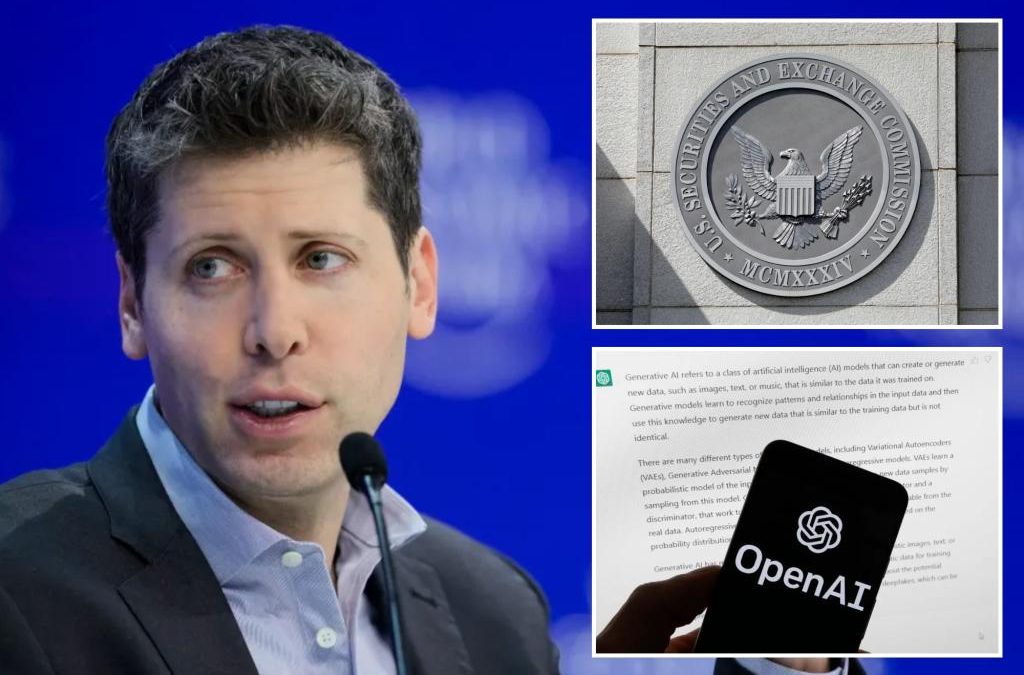The Securities and Exchange Commission is reportedly investigating internal communications sent by OpenAI chief Sam Altman as part of a probe into whether the tech whiz misled investors.
The federal regulator — whose probe hasn’t previously been reported — sent a subpoena to the ChatGPT-maker in December, and is seeking internal records from current and former OpenAI officials and directors, according to the Wall Street Journal December, which cited people familiar with the matter.
The move followed the former OpenAI board’s decision in November to fire Altman as CEO and oust him from the board.
The board of the non-profit startup at the time said it “concluded that he was not consistently candid in his communications with the board, hindering its ability to exercise its responsibilities.”
SEC officials in New York are spearheading the effort, per The Journal, which has asked OpenAI executives preserving the company’s internal communications.
The Journal said some sources described the investigation as a predictable response to the former board’s claim in its November statement.
The report added that the SEC has not pointed to any specific statement or communication by Altman that it has deemed misleading, citing one source.
An SEC spokesperson told The Post that the agency “does not comment on the existence or nonexistence of a possible investigation.”
Representatives from OpenAI did not immediately respond to The Post’s request for comment.
Altman, 38, was brought back as OpenAI CEO less than two weeks after his resignation as part of a deal that eliminated the members of the previous five-member board.
Instead, former Twitter chairman Bret Taylor, former Treasury Secretary Larry Summers and Quora CEO Adam D’Angelo were appointed to a new nine-member board in November.
The probe comes as Altman is reportedly in talks to raise billions of dollars for a chip venture. OpenAI has also recently completed a deal that values the Microsoft-backed startup at $80 billion or more, the New York Times reported earlier this month.
Three people with knowledge of the matter confirmed the deal to The New York Times, noting that the company would sell existing shares in a so-called tender offer — a public bid for stockholders to sell their stock — led by Josh Kushner’s firm Thrive Capital.
Though the AI behemoth is governed by a nonprofit, its for-profit arm touts deep-pocketed investors including Microsoft, which has committed $13 billion to the company as part of a “multi-year agreement” that gives the Big Tech firm a 49% stake in the earnings of its for-profit arm, according to The Journal.
Meanwhile, since Altman’s return, the firm has continued to roll out new technology.
It’s latest, called Sora, can produce high-caliber video in response to a few simple text queries.
Sora uses its “deep understanding of language” to create clips of up to one-minute long that include “compelling characters” and “multiple shots within a single generated video,” the company said on a website dedicated to the new tech.
Source




